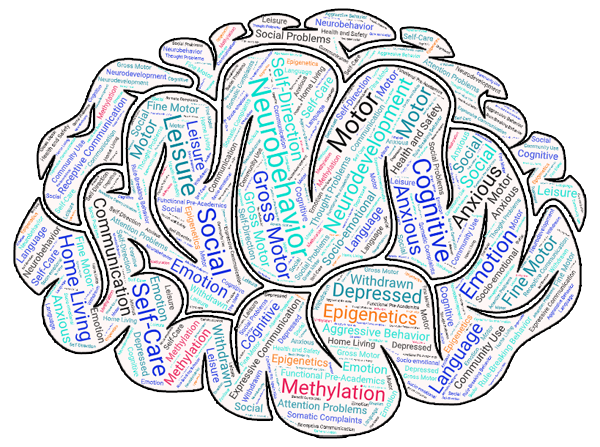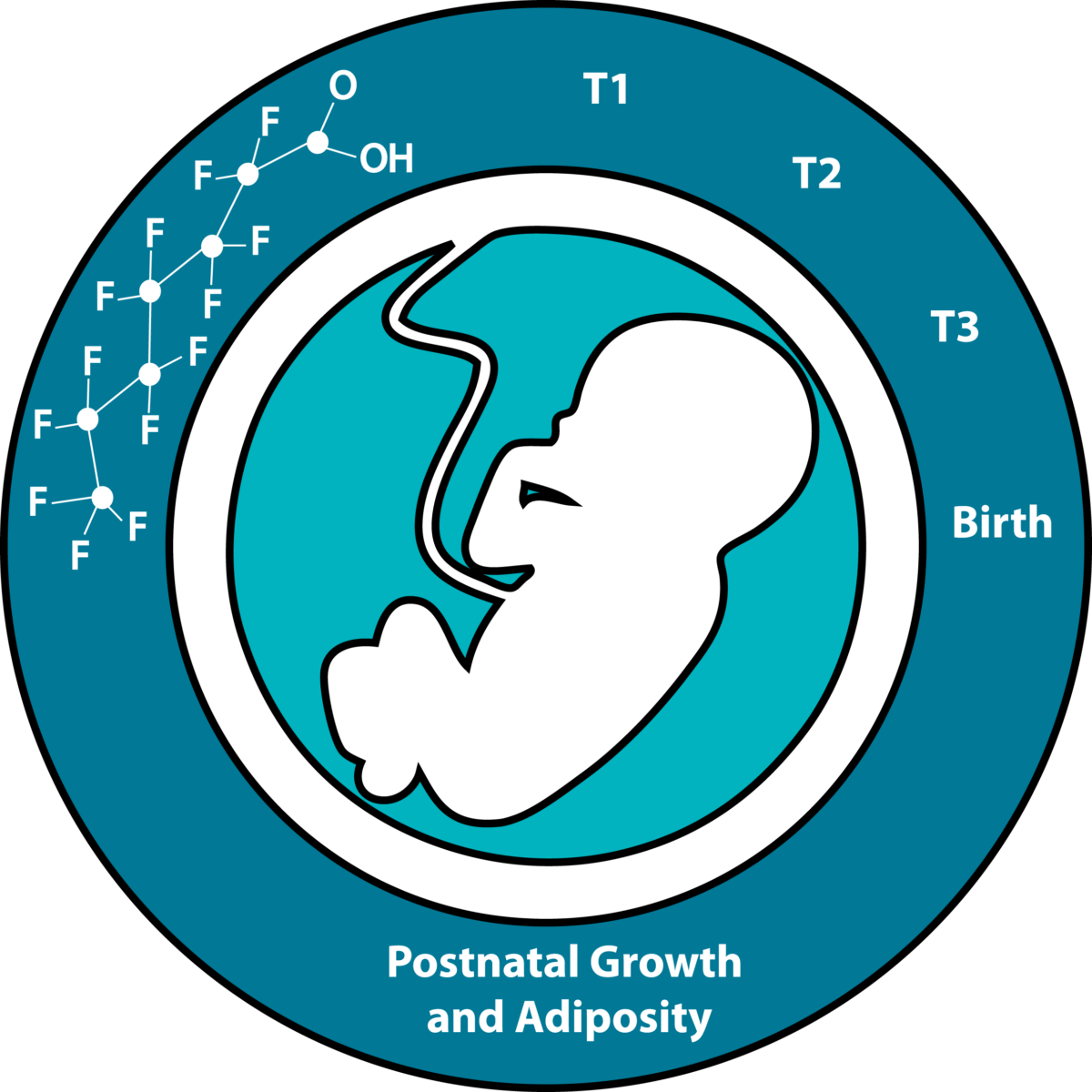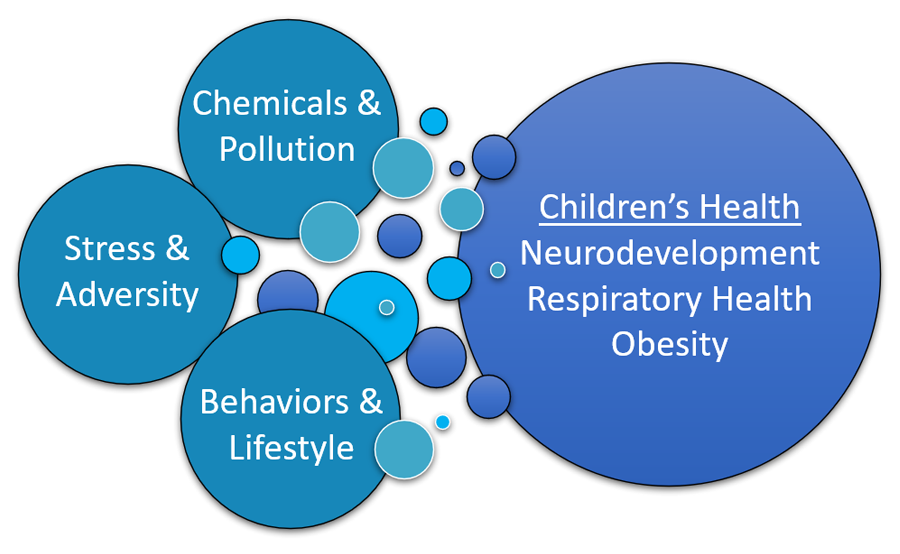
R01HD084515 – Epigenetic Markers, Trajectories and Predictors of Neurodevelopment in Childhood among Infants Born Very Preterm.
mPIs: Todd M. Everson (Emory) & Barry Lester (Brown)
Infants born very preterm are at increased risk of experiencing adverse developmental outcomes in childhood, and there is a need to identify markers in early life capable of improving predictions for which infants are most likely to be affected. In this project, we are measuring DNA methylation longitudinally throughout childhood to examine whether trajectories of DNA methylation and epigenetic aging in are influenced by neonatal factors, and whether they are informative for later neurobehavioral impairments. So far, we have demonstrated that neonatal morbidities, neurobehavior, and cry acoustics are associated with DNA methylation signatures at discharge from the NICU. We are continuing to collect biosamples and exposure/outcome data on these children through age 7, and are currently studying how neonatal factors are associated with neurobehavioral outcomes in early childhood.
This project is in collaboration with mPI Dr. Barry Lester, and the investigators and staff of the Neonatal Neurobehavior and Outcomes in Very Preterm Infants (NOVI) study. Additionally, the NOVI study is part of the NIH’s Environmental Influence on Child Health Outcomes (ECHO) project (described below).

1R01ES032176 – Growth and metabolic programming from prenatal PFAS exposure: examining the roles of placental functional genomics and protection by maternal exercise
mPIs: Todd M. Everson (Emory), Kevin Pearson (Kentucky) & Aline Andres (Arkansas)
Endocrine-disrupting chemicals, particularly environmentally ubiquitous obesogens such as per- and polyfluoroalkyl substances (PFAS), are thought to contribute to the obesity epidemic. These chemicals may have their effects early in life with impacts throughout the life course. We are performing a novel assessment of the influences of prenatal PFAS exposures on children’s health by measuring PFAS concentrations at multiple time points throughout pregnancy, at birth, and in multiple tissues. We will test for associations with postnatal growth and adiposity, and examine the role of the placenta by studying placental functional genomics. Additionally, we will assess the potential protective effects of maternal exercise during pregnancy.
This ViCTER project brings together a new team of transdisciplinary investigators (mPIs Dr. Everson, Dr. Pearson, & Dr. Andres) to produce novel data about mechanisms of disease and dysfunction associated with prenatal PFAS exposure.

5UH3OD023347 – Environmental Influences on Neurodevelopmental Outcome in Infants Born Very Preterm.
mPIs: Barry Lester (Brown) & Carmen Marsit (Emory)
Dr. Everson is a co-Investigator with ECHO-NOVI, which is led by Dr. Barry Lester and Dr. Carmen Marsit. ECHO-NOVI is integrating the NOVI cohort into the NIH’s 7-year ECHO initiative to study how environmental exposures (physical, chemical, biological, social, behavioral, natural and built environments) impact children’s health and development. This trans-disciplinary project brings together numerous longitudinal cohorts across the nation, to form a large super-cohort that can assess exposure-outcome relationships during the pre-, peri-, and post-natal periods. The ECHO initiative provides a unique and robust approach for investigating mechanisms that underlie healthy development and common health outcomes. NOVI uniquely contributes to this effort with a population of children that were born prematurely and face unique vulnerabilities. We aim to better understand how environmental factors may contribute to outcomes in these children and to determine whether there are opportunities for early intervention efforts when can be most valuable.
Research Collaborations:
I collaborate with Carmen Marsit (PI: Rhode Island Child Health Study) and with Margaret Karagas (PI: New Hampshire Birth Cohort Study) to study the impacts of prenatal exposures (cadmium, selenium, arsenic, cigarette-use, etc.) on epigenetic and transcriptional responses in placenta and cord blood. The placenta is the organ that directly regulates the in-utero environment, and serves critical functions of nutrient & waste transfer, neuroendocrine & growth hormone signaling, metabolism, and immune modulation. Cord blood is composed of immune cells, stem cells, and red blood cells. These represent non-invasive tissues that can be sampled from human neonates at birth, and can thus be studied to learn about how prenatal stressors and environmental exposures perturb epigenetic regulation, and associate with neonatal and postnatal outcomes. These projects are sometimes expand to multi-cohort meta-analyses with the Pregnancy and Childhood Epigenetics (PACE) consortium, in order to perform high-powered Epigenome-Wide Association Studies (EWAS) of perinatal and childhood exposures and outcomes.
